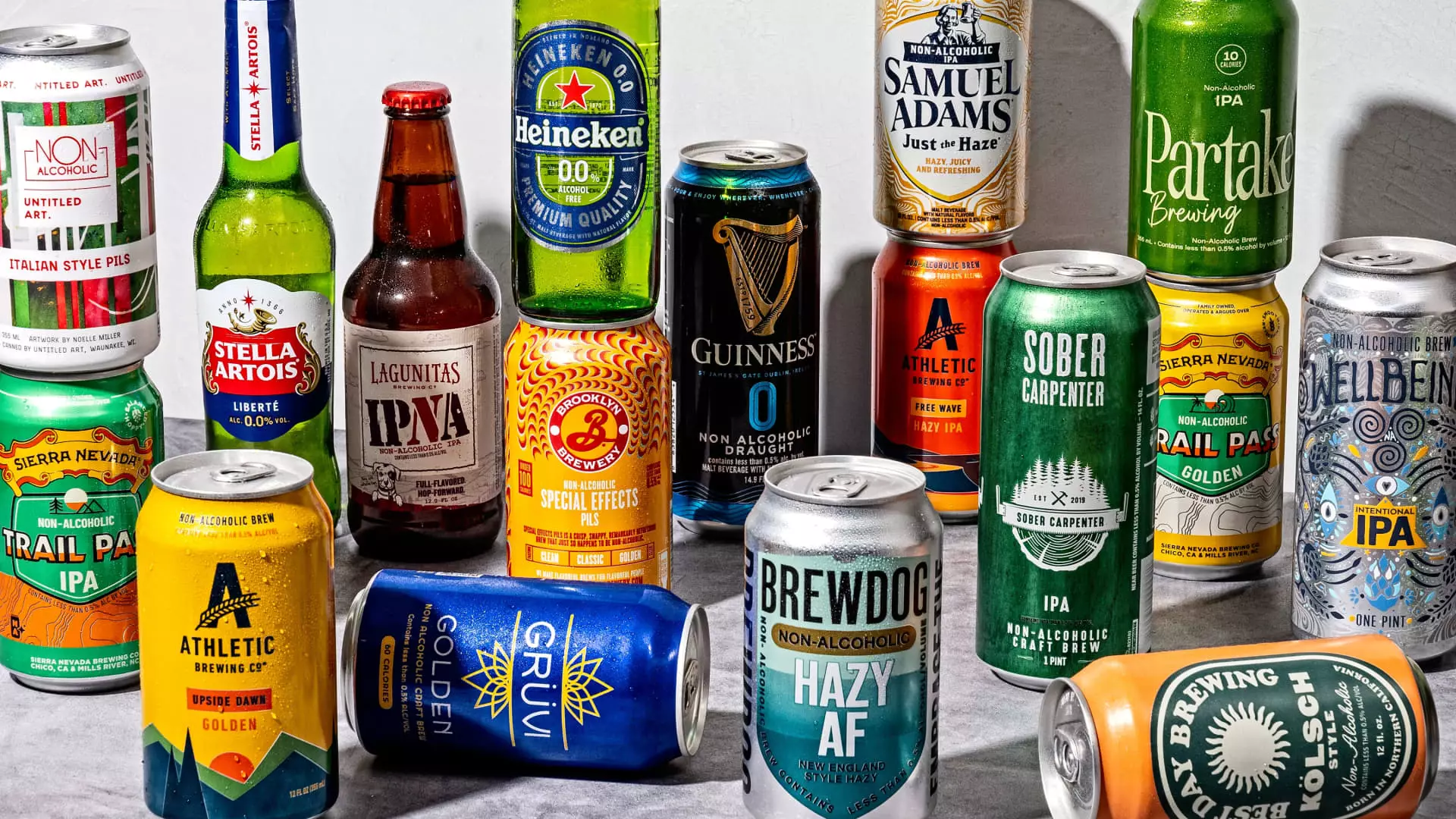The beverage industry is witnessing an extraordinary transformation, with non-alcoholic beer (NAB) positioned to become a significant player in the global market. Recent projections from IWSR suggest that NAB is on the cusp of overtaking ale as the second-largest beer category by volume this year. This shift is not merely a reflection of changing consumer priorities; it represents a profound cultural shift towards healthier lifestyle choices, and it is a movement that deserves our attention.
As we analyze this brewing phenomenon, we can observe a staggering 9% growth in non-alcoholic beer volume in 2024, even as overall beer consumption declines by about 1%. This stark contrast paints a vivid picture of an evolving consumer base that favors moderation over excess. It’s particularly promising to see that the younger generations, namely Gen Z and millennials, appear to be driving this movement, favoring terms like “sober curious” over traditional labels like “abstainer.” This linguistic evolution not only highlights a rejection of alcohol-centric culture but also a burgeoning acceptance of diverse lifestyles, fully embracing the idea that one can enjoy the social settings of drinking without the pitfalls that often accompany intoxication.
The Appeal of Zero-Proof Alternatives
It’s worth noting that the flavor profiles of non-alcoholic beers have substantially improved in recent years. Many of the world’s leading beer brands have recognized this growth trajectory and invested in creating NAB products that don’t compromise on taste. Giants such as Guinness, Budweiser, and Heineken are venturing into the zero-proof territory, making it clear that they are keen to adapt to meet consumer demands. This trend showcases not only clever marketing but the ability of the industry to innovate.
However, this change is not merely a marketing gimmick—it’s a direct response to a significant shift in social consciousness. People are increasingly aware of the impacts of alcohol on their health and wellbeing. According to IWSR, the projected annual growth rate for no-alcohol beer is poised to reach 8% through 2029, while traditional ales are expected to decline, shedding 2% annually. This disparity raises essential questions about the future of alcohol consumption: Are we witnessing the dawn of a new age where flavor triumphs over fermentation?
The Spotlight on Market Dynamics
Non-alcoholic beers have already garnered substantial market share, but it’s essential to recognize that they still constitute only about 2% of the global beer market. Lager continues to hold a dominant 92% share, yet the slower growth rate of traditional beer categories suggests a generational pivot towards healthier consumption practices. The U.S. market, though ranked sixth for NAB consumption, indicates a burgeoning demand. Companies like Athletic Brewing, which has exponentially grown its market presence since its inception in 2018, exemplify a new entrepreneurial spirit that challenges the status quo of the alcohol industry.
It’s compelling to observe that NAB is raising not just sales figures but also changing conversations around drinking. Companies like Athletic Brewing, which enjoys a considerable slice of the NAB market share, are reshaping the consumer landscape. No longer are we simply reacting to traditional alcohol beverages; rather, we are progressing towards a nuanced drinking experience that values both taste and health.
The Role of Celebrity Influence
Interestingly, even non-alcoholic beer hasn’t escaped the glitz and glamour of celebrity endorsements. High-profile individuals like Tom Holland and Dwyane Wade have stepped into this burgeoning industry, launching their own zero-proof brands. It’s a testament to the shifting tides in consumer preferences, where even A-list celebrities are aligning themselves with a movement that advocates for healthier, more responsible drinking habits. Such endorsements could elevate the visibility of NAB products while reinforcing the idea that non-alcoholic options can be stylish and desirable.
This cultural onus is not trivial; it bears the potential to reshape social norms surrounding drinking. As more consumers gravitate towards no-alcohol options, it invites a broader discussion about the role of alcohol in our lives and society at large. Can we redefine social interactions, celebrations, and everyday routines without the necessity of alcohol? The rise of non-alcoholic beer challenges conventions and replaces them with a proactive approach to enjoying life’s moments with clarity and intention.

